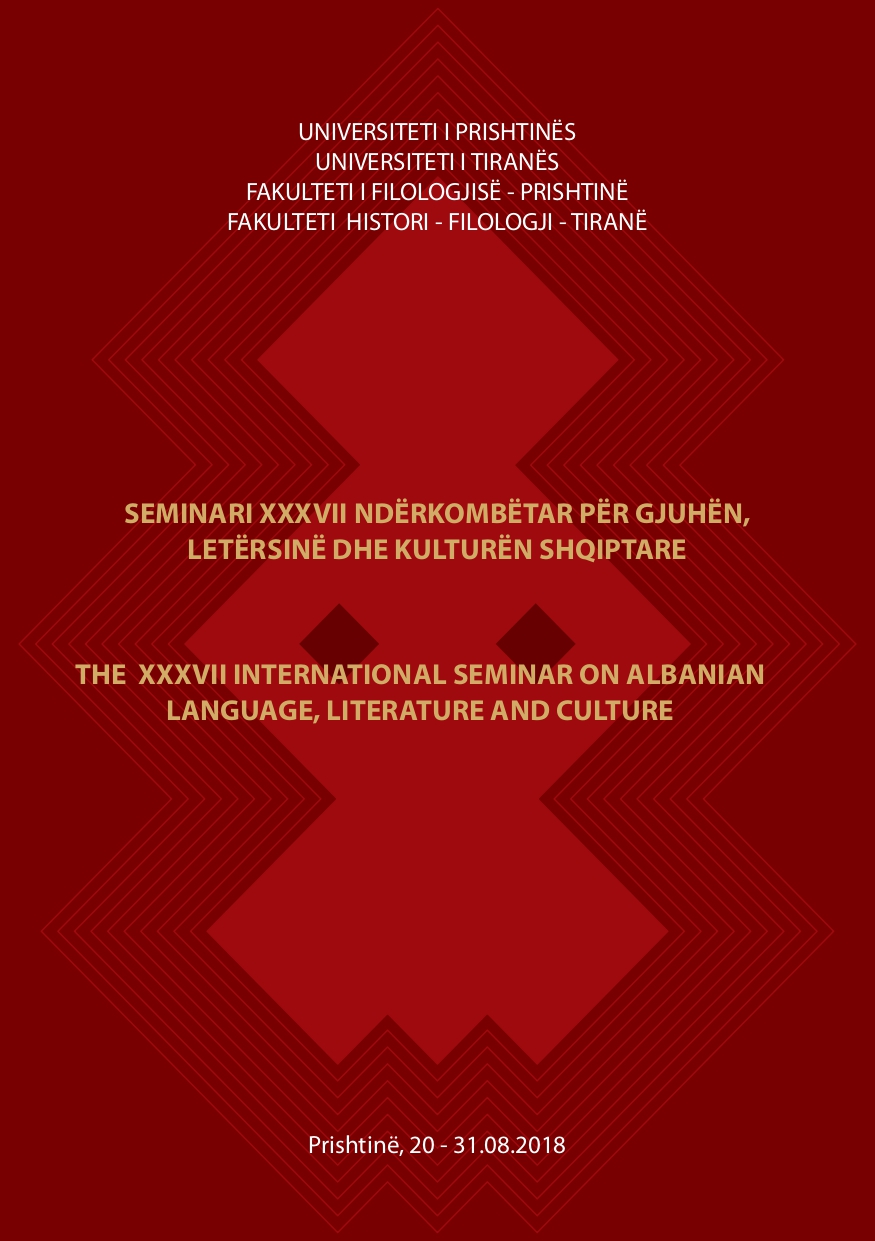Disa vëzhgime mbi të folmen e mërgatës së re
Some aspects of the dialect of the new diaspora
The case of some Shkodran children in England
Author(s): Aida UruçiSubject(s): Language studies, Language and Literature Studies, Foreign languages learning, Phonetics / Phonology, Morphology, Syntax, Philology
Published by: Univeristeti i Prishtinës, Fakulteti i Filologjisë
Keywords: language; discourse; phonetics; lexicon; morphological structure; syntax structure; code mixing; bilingual; trellis; monolingual;
Summary/Abstract: Starting from the axis theme: Albanian diaspora, we thought that the object of our work was to study dialects of the new diaspora, which was removed after the 90s for historical and economic reasons that are already known. We have tried to investigate and interpret language and extraneous factors influencing the development of language in second generation children, with the main purpose of their linguistic conscience and the developments that undergo it.We have considered the discourses of different age groups, who were born and raised outside the Albanian lands, but with two Albanian parents. They speak a mock-and-swallow language of the massive influence of English as a result of the school and mass media, such as television, computers, and so on. Interest has shown us the lexicon they carry on themselves, but also the morphological and syntax structures that we will notice in the recitation of the poems, the story of tales, their re-dating, and so on.According to a survey conducted in children (bilingual and trellis), we have come to the conclusion that the speech of these children is clear and understandable considering the age and duration of their contact with the Albanian. Both are able to read well the text, where the use of foreign accent (Italian and English) and difficult reading of some derivative and composite words are highlighted. It is known that bilingual children, trels have difficulty setting the boundary between two (three) language systems they use. So in many cases use language expressions or lexical units in contact without being aware of it. They try to be conscious in the expression of thought, but we also encounter language slips in some forms, as a result of learning a communication language. As the second generation they are, they speak a clear Albanian language and we hope that they will inherit their beautiful Albanian language in their children. For this reason, language strategies should be developed in the entire Albanian territory for the preservation of heritage from generation to generation.
Journal: Seminari Ndërkombëtar për Gjuhën, Letërsinë dhe Kulturën Shqiptare
- Issue Year: 2018
- Issue No: 37.1
- Page Range: 127 - 140
- Page Count: 14
- Language: Albanian

